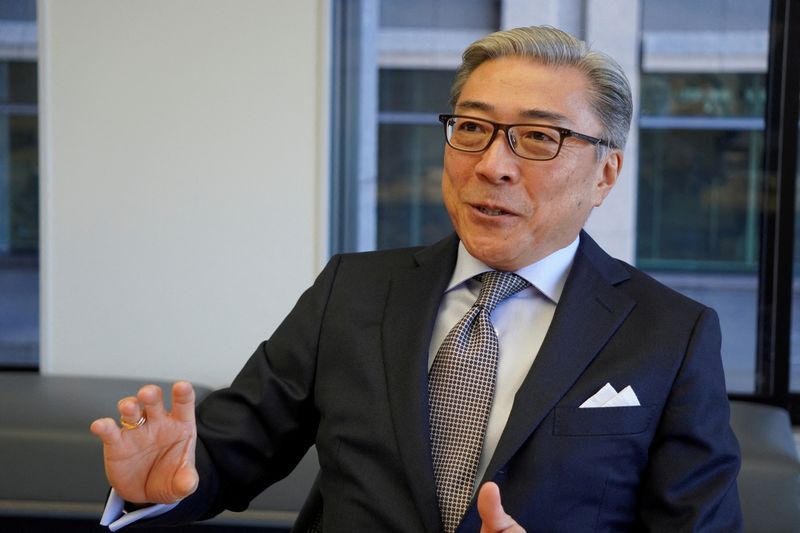
Trump’s easing of regulations to trigger Japan outbound M&A, Citi exec says
By Anton Bridge and Miho Uranaka
TOKYO (Reuters) – Japanese companies will find it easier to gain approval for U.S. acquisitions under the incoming Trump administration, the vice chairman of Citigroup (NYSE:C) in Japan said, even as President-elect Donald Trump opposes Nippon Steel’s attempted buyout of U.S. Steel.
The Trump presidency will also spark business reorganisations, which would swell the number of acquisition targets for Japanese firms, Citi Japan Vice Chairman Masuo Fukuda told Reuters on Tuesday.
The proposed $15 billion takeover of the storied U.S. steelmaker by Nippon Steel faces antitrust and national security reviews in the United States and is opposed both by Trump and by current U.S. President Joe Biden, as well as the United Steelworkers union, marking a rare point of economic friction between the two close allies.
Nevertheless, a broader relaxing of regulations will create opportunities for Japanese companies, the world’s largest investors in the U.S., Fukuda said.
Citi is anticipating an uptick in inquiries for outbound M&A from Japan, Citi’s head of M&A Yoshinobu Agu said in the same interview.
“Up to now, many in the U.S. were deferential to the Federal Trade Commission and its strict rules,” Agu said. “This is a chance for Japanese firms.”
Lawyers say the commission’s Biden-era merger review guidelines, which were seen by dealmakers as unduly restrictive, may be scrapped under Trump.
Citi has similarly high expectations for Japan’s buoyant inbound M&A market, which has defied a global deals slump to hit a record $82 billion this year as of the end of November, growing more than tenfold from the same period last year.
Japanese M&A guidelines introduced last year to promote more deals, coupled with higher expectations of capital efficiency among Japanese insitutional investors, will increase the impetus on Japanese firms to engage in M&A in the coming years, Fukuda and Agu said.
“Japanese companies have a long history of holding excess assets. As they reorganise their portfolios with a view to increasing shareholder profit and company value, there will be more attractive and easier-to-buy targets,” Agu said.

